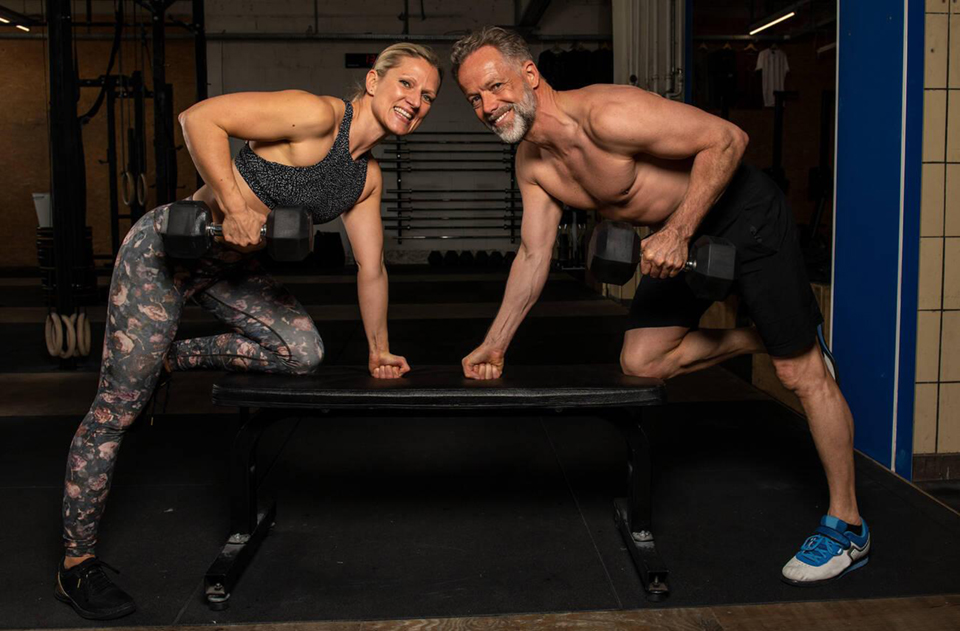Achieving an incredible physique at any age can be challenging and is even more difficult as you start to get older. It is easy to fall into a comfortable lifestyle and let things go a little. Many people need to realise that as you age, keeping fit and healthy becomes more important than ever.
If you want to live a long, healthy life, keep up with the grandchildren, walk your child down the aisle, or take that trip you never had time for, you need to make sure your health is in tip-top condition. Fear not! This article will be your comprehensive guide to keeping fit over 50. We will discuss what you should aim to achieve and topics such as nutrition and training.
The Basics
According to sources such as the NHS and the CDC, you should aim to achieve a Body Mass Index (BMI) between 18.5 and 24.9. Your BMI is a comparison of your weight to your height. While it is not an exact reflection of your health and doesn’t work for people who carry considerable amounts of muscle mass, it is an effective measurement for most average people. There are several reasons why keeping your BMI in this range after 50 is so important.
Firstly, as you get older, you become more susceptible to conditions such as arthritis. Keeping a healthy body weight help to protect your joints, keeping you active, mobile and independent.
Secondly, having a healthy BMI will make you less prone to type 2 diabetes, coronary heart disease, cancer and stroke.
Thirdly, having a BMI which is too low, essentially being underweight, can lead to nutritional deficiencies and a weakened immune system.
Finally, keeping lean will make you look great, making you feel even better! Who doesn’t want to be confident right?
Nutrition
Now, let’s look at how changes to your nutrition can keep your BMI in a healthy range.
Firstly, you must ensure you’re eating a balanced diet and staying hydrated to get all the vital minerals and vitamins your body requires to function correctly.
Also, as you get older, you must incorporate lots of protein into your diet. Protein is an essential nutrient that helps maintain your muscle mass. Maintaining your muscle mass is vital to protect the health of your joints, living longer and preventing diseases such as diabetes. The loss of muscle mass in older people also makes them frailer, resulting in a loss of independence.
Furthermore, the amount of calories you eat is also important. Eat too many calories (too much food), and you will put on weight, leading to a higher BMI. Eat too few calories, and you will achieve the opposite. You can access many free calorie calculators on the internet that will use information such as your age, height, gender and activity level to determine how many calories you should be eating based on your goals.
Training and Exercise
The amount you exercise you do is essential to keeping strong and toned after 50. It’s important to exercise to burn calories, improve your strength and fitness and get your heart pumping! The NHS advises doing two and a half hours of moderate-intensity exercise a week. But what type of exercise should you be doing?
Resistance training is a fancy way of saying weight training in the gym. While many people associate this type of training with bodybuilders like Mike O’Hearn and Arnold Swaggernager, it benefits ordinary people like you and me. Studies have shown that regular weight training helps maintain muscle mass and bone density and helps keep your heart healthy and lower cholesterol. Regular weight training will also make you look great as you put on muscle!
If weight training doesn’t interest you, then activities like running, walking and swimming may be of more interest to you.
Final Thoughts
So, follow these steps if you want to achieve a strong, toned, healthy body at 50 and over. Make sure you are eating a balanced diet full of protein. Remember to exercise regularly. Weight training or other activities are important ways to burn calories and keep fit and strong. Finally, try to keep your BMI in a healthy range. If it’s a little high, try eating fewer calories and exercising more. If it’s a little low, try eating more calories and protein to increase your muscle mass. Finally, be consistent. Try to do the same level of activity every week and build good eating habits. Always consult your doctor before acting on any advice given in this article. Everyone is different, and no one is better suited to giving you advice other than your medical professional!


Comments are closed, but trackbacks and pingbacks are open.